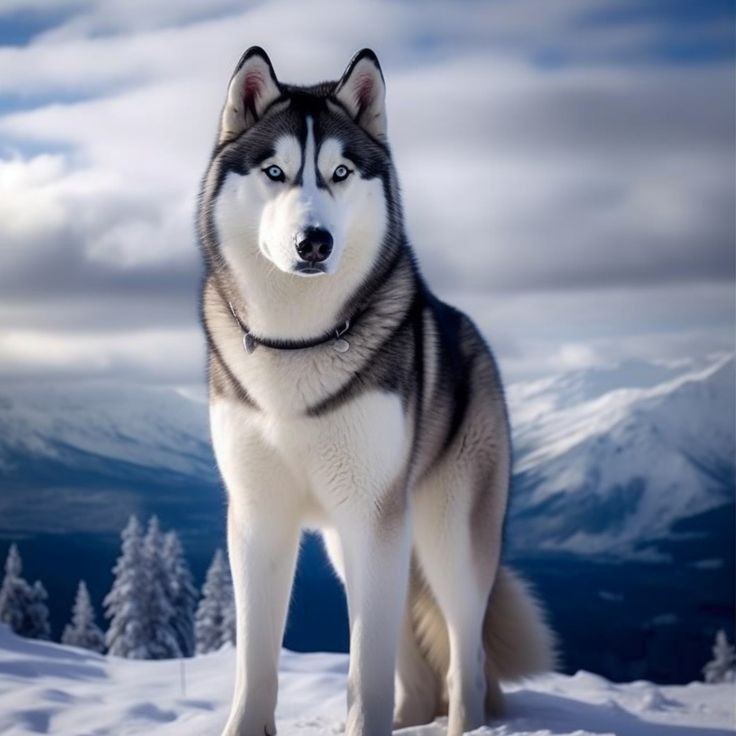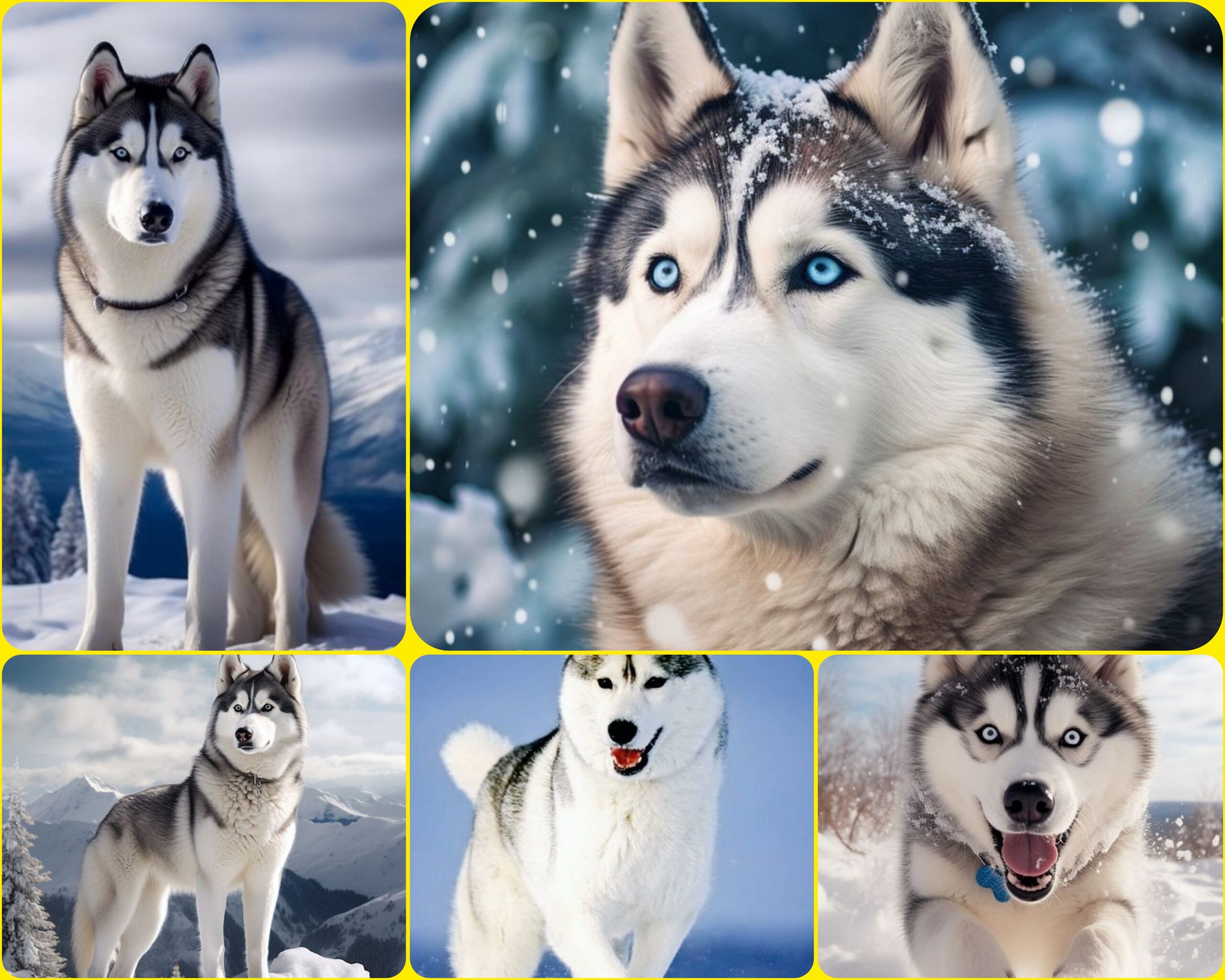✅ Origin of Siberian Huskies
Siberian Huskies originated from the Chukchi people of Siberia, Russia. These dogs were bred as sled dogs, capable of enduring long journeys in harsh, cold climates. Their endurance, strength, and ability to work in teams made them invaluable to the Chukchi. In the early 20th century, Huskies were brought to Alaska during the Nome Gold Rush, where they gained fame in sled dog racing and rescue missions.
✅Care for Siberian Huskies
1. Diet and Nutrition:
- Balanced Diet: Siberian Huskies need a diet rich in protein and fat due to their high energy levels. Opt for high-quality dog food that meets these nutritional needs.
- Portion Control: Huskies are known for their efficient metabolism. Feed them measured portions twice a day to maintain a healthy weight.
- Hydration: Ensure they always have access to fresh water, especially after exercise.
2. Grooming:
- Coat Maintenance: Huskies have a double coat that sheds heavily twice a year. Regular brushing (at least once a week) is essential to manage shedding and keep their coat healthy.
- Bathing: Bathe your Husky every few months or when necessary. Over-bathing can strip their coat of natural oils.
- Nail and Dental Care: Trim their nails regularly and brush their teeth a few times a week to prevent dental issues.
3. Exercise:
- Daily Exercise: Huskies are highly energetic and require at least 1-2 hours of exercise daily. Activities like running, hiking, and playing fetch are great options.
- Mental Stimulation: Provide toys and engage in training exercises to keep their minds active. Huskies can become bored and destructive without adequate mental stimulation.
✅Training Siberian Huskies
1. Early Socialization:
- Introduce your Husky to different environments, people, and other animals early on. This helps them become well-adjusted and reduces the risk of aggressive behavior.
2. Obedience Training:
- Basic Commands: Start with basic commands such as sit, stay, come, and heel. Use positive reinforcement techniques like treats and praise.
- Consistency: Be consistent with commands and rules. Huskies can be stubborn, so patience and repetition are key.
3. Crate Training:
- Crate training can help with housebreaking and provide your Husky with a safe space. Make the crate inviting with a comfortable bed and toys.
4. Leash Training:
- Teach your Husky to walk on a leash without pulling. Use a harness to avoid strain on their neck and practice walking in low-distraction areas before progressing to busier environments.
5. Advanced Training and Activities:
- Engage your Husky in activities like agility training, sledding, or skijoring. These activities cater to their natural instincts and provide excellent physical and mental exercise.
✅Conclusion
Siberian Huskies are a unique and fascinating breed with a rich history and specific care and training needs. By understanding their origin and providing appropriate care and training, you can enjoy a harmonious and fulfilling relationship with your Husky. Remember, the key to a happy Husky is a combination of physical activity, mental stimulation, and consistent, positive training methods.

